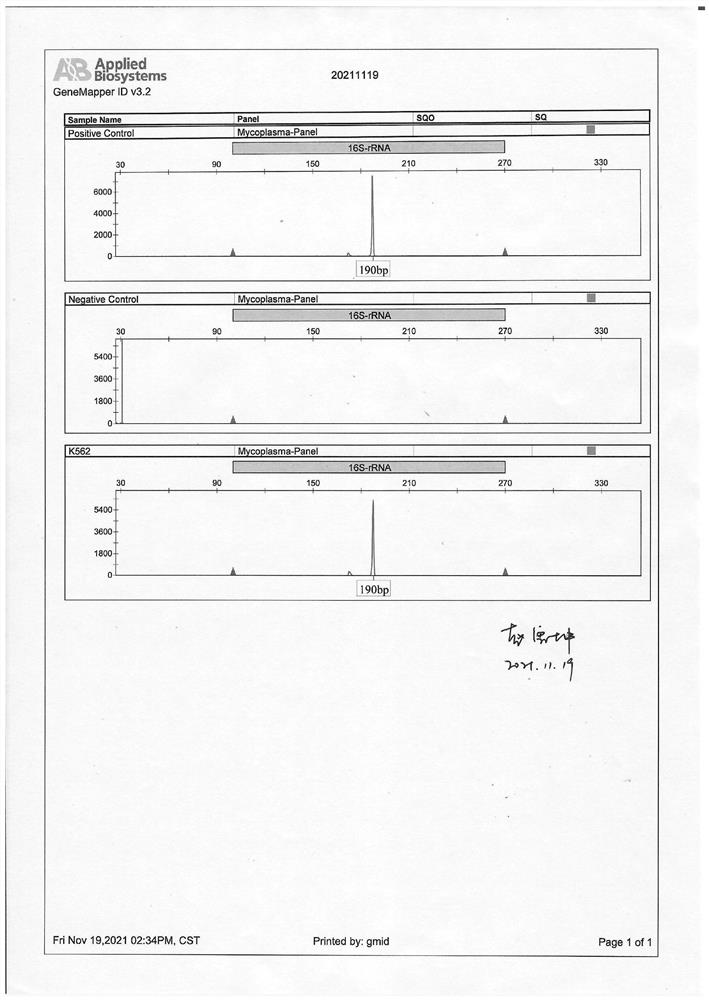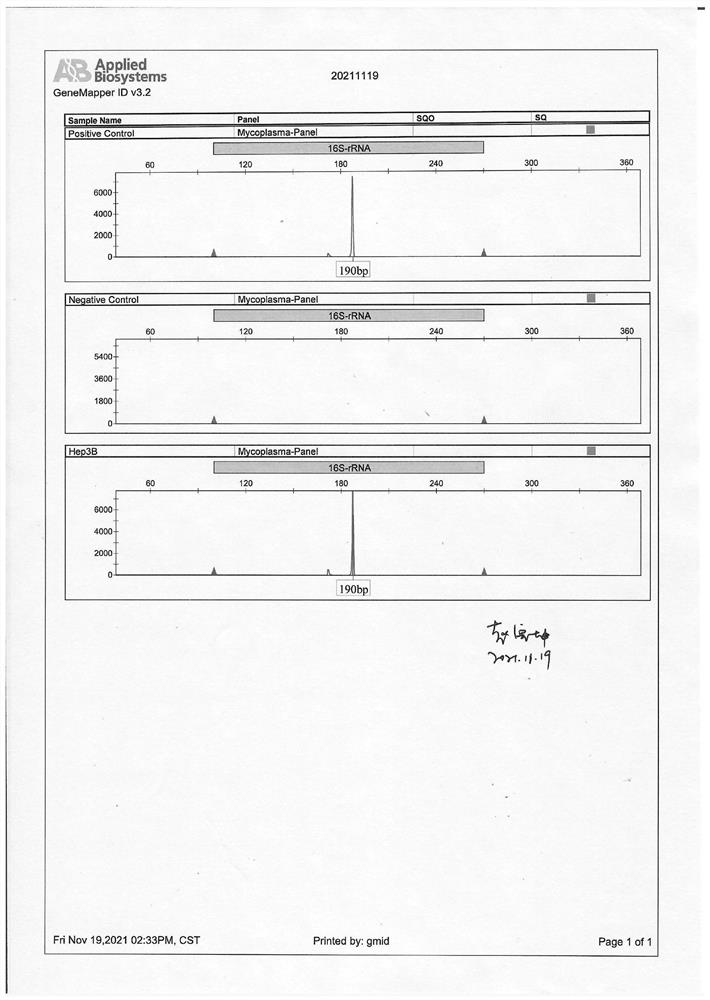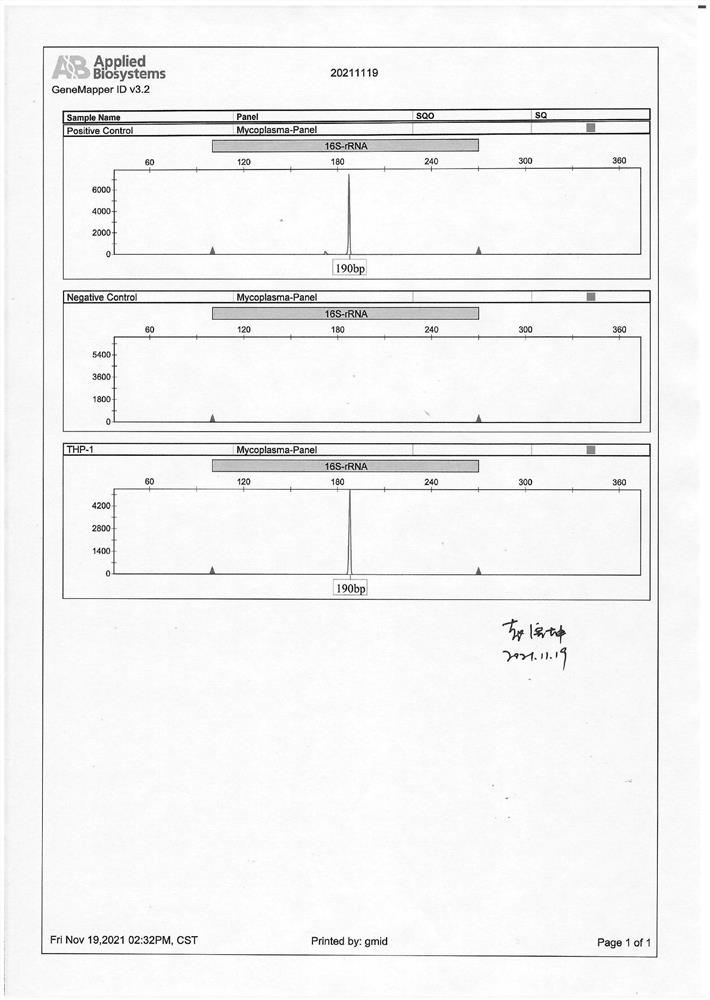PCR (Polymerase Chain Reaction) kit for detecting mycoplasma pollution in cell culture and application of PCR kit
A technology of cell culture and mycoplasma, applied in the field of PCR, can solve the problems of poor broad-spectrum, high price, and shortened detection time, and achieve the effect of accurate and reliable data, simple operation, and rapid detection
- Summary
- Abstract
- Description
- Claims
- Application Information
AI Technical Summary
Problems solved by technology
Method used
Image
Examples
Embodiment 1
[0052] Example 1 Application Verification of PCR Detection Kit
[0053] In this example, the specific implementation of mycoplasma detection on the DNA samples of 5 cell lines K562, Hep3B, THP1, A20, and YAC-1. The five cell lines were all contaminated by mycoplasma, among which K562, Hep3B, THP1 were commonly used human cell lines; A20, YAC-1 were commonly used mouse cell lines.
[0054] 1. DNA extraction
[0055] The Chelex100 crude extraction method was used to extract the whole genome DNA from the four cell lines. Take 1000 μL of cell suspension, shake and centrifuge at 10,000 rpm for 3 minutes, discard the supernatant, add 200 μL of 5% Chelex100 suspension and 3 μL of PK 10 mg / mL, bathe in water at 56°C for 1 hour, shake slightly, then take a boiling water bath for 8 minutes, shake for 10 seconds, and centrifuge at 10,000 rpm for 3 minutes. The supernatant was used for later use. After the DNA was extracted, it was quantified with a UV spectrophotometer and diluted to ...
Embodiment 2
[0072] Example 2 The specificity verification result of PCR detection kit
[0073] In this example, the specificity of the kit was verified by detecting the DNA of five cell lines. The five cell lines are all K562 cells, K562-1 is a normal strain without any pollution; K562-2 is a strain infected by pseudorabies virus; K562-3 is a strain infected by Escherichia coli; K562-4 is a strain infected by Mycoplasma hyorhina strain; K562-5 is a strain infected by Mycoplasma gallisyoviolum. The PCR detection kit described in this example was used to amplify the genomic DNA of the above five K562 cell lines and perform capillary electrophoresis on a 3130xl genetic analyzer.
[0074] 1. DNA extraction
[0075] The Chelex100 crude extraction method was used to extract the whole genome DNA from the four cell lines. Take 1000 μL of cell suspension, shake and centrifuge at 10000 rpm for 3 minutes, discard the supernatant, add 200 μL of 5% Chelex100 suspension and 3 μL of PK 10 mg / mL, bath...
PUM
 Login to View More
Login to View More Abstract
Description
Claims
Application Information
 Login to View More
Login to View More - R&D Engineer
- R&D Manager
- IP Professional
- Industry Leading Data Capabilities
- Powerful AI technology
- Patent DNA Extraction
Browse by: Latest US Patents, China's latest patents, Technical Efficacy Thesaurus, Application Domain, Technology Topic, Popular Technical Reports.
© 2024 PatSnap. All rights reserved.Legal|Privacy policy|Modern Slavery Act Transparency Statement|Sitemap|About US| Contact US: help@patsnap.com










